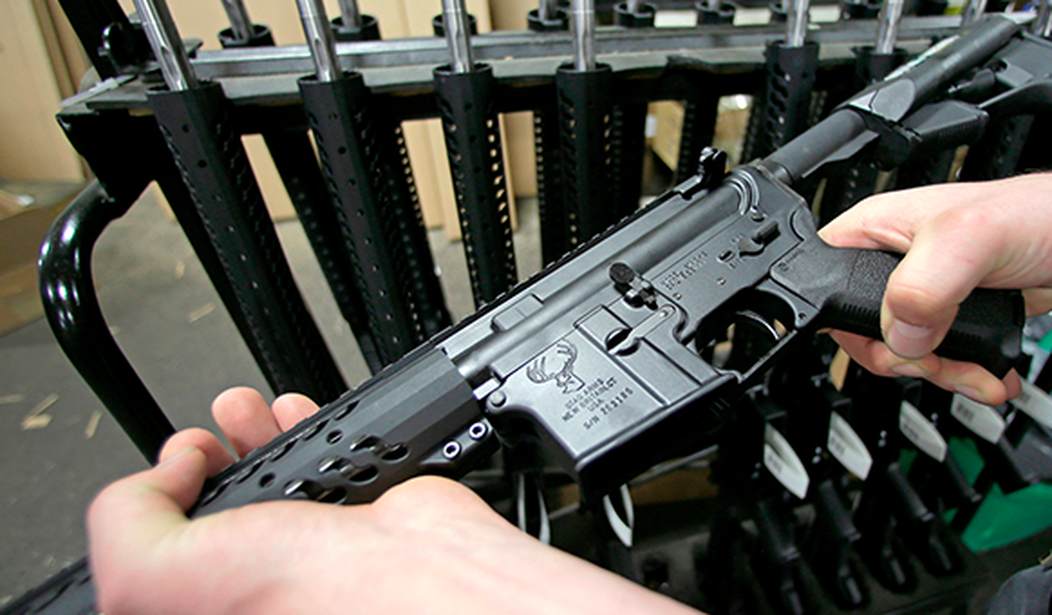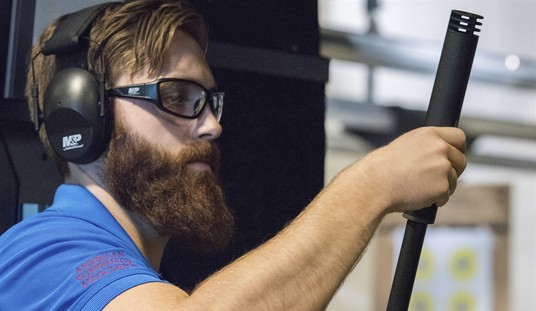Massachusetts Democrats pushed a very controversial gun control law last year; one so controversial that it couldn’t pass in that anti-gun state.
This year, they allegedly toned it down and reintroduced it.
Full of unfunded mandates for local law enforcement and other horrific measures, this law is already meeting much of the same opposition it had last go around.
But let’s not forget there are people who will support it, including folks in the anti-gun media.
I bring this up because I came across this editorial in defense of the bill.
You see, the editors of the Berkshire Eagle think this bill isn’t that bad, and they bring up a few places the bill was toned down, then attacked critics.
After all of these substantive changes that genuinely addressed concerns about currently owned firearms and ostensible imposition on gun-owners, what was Mr. Wallace’s assessment of the newly drafted gun bill? At Tuesday’s hearing, he claimed this, too, amounted to “the most egregious attack on civil rights I have seen from a government in this century, in Massachusetts and nationwide.”
Such a remark strained credulity the first time; it tortured logic the second time, suggesting that two considerably different bills — one considerably less restrictive than the other — each amount to an equally “egregious attack on civil rights.” The cynical cheapening of that phrase notwithstanding, what does this say about the substance of the most vocal opposition to this bill? In what sense is requiring permission from other private citizens before bringing a deadly weapon into their homes an attack on gun-owners’ rights? Whose civil liberties are undermined by drawing a reasonable line between civilian ownership of certain firearms sufficient for hunting or home defense and the sort of weaponry meant for warzones? Is it really treading on firearm enthusiasts to demand that they pursue more rigorous training — which likely means more firearm use in a controlled environment — before they obtain a device that happens to be the leading cause of death among U.S. children?
First, yes, it is “treading on firearm enthusiasts to demand they pursue more rigorous training” before they can exercise a basic, constitutionally protected right. We do nothing of the sort for any other right, and if you don’t believe things like free speech and voting have consequences, you’re deluded.
It should also be noted that the Second Amendment has nothing to do with hunting and maybe it’s just me, but I won’t be taking home defense advice from a newspaper editorial board that knows absolutely nothing about the subject.
But it’s also worth noting that they blatantly misrepresent at least one point of contention with the bill.
See, I know they read enough to know all the differences between the bills. They should be familiar with this bit that Cam discussed when the bill first dropped:
Day’s bill appears to offer new restrictions on who can possess and carry a firearm in the state that go far beyond current federal law, as well as new restrictions on the type of guns that can be sold in the state. In fact, if I’m reading this section of HD 4607 accurately, the bill imposes a ban on all guns sold without “safety devices”; a move that could open the door to only so-called smart guns being offered for sale.
Any firearm sold within the commonwealth without a safety device designed to prevent the discharge of such firearm by unauthorized users and approved by the colonel of state police including, but not limited to, mechanical locks or devices designed to recognize and authorize, or otherwise allow the firearm to be discharged only by its owner or authorized user, by solenoid use-limitation devices, key activated or combination trigger or handle locks, radio frequency tags, automated fingerprint identification systems or any other biometric means, provided, that such device is commercially available, shall be defective and the sale of such a firearm shall constitute a breach of warranty under section 2–314 of chapter 106 and an unfair or deceptive trade act or practice under section 2 of chapter 93A.
Now, Cam notes that a typical gun lock may well be sufficient if the colonel of the Massachusetts state police so decides. However, he’s not required to accept those, which means one unelected official could decide the entire state is only allowed to buy smart guns.
Then there’s delving into things like microstamping technology–something other states have tried to mandate and failed repeatedly–that are problematic to an extreme.
See, while it’s easy to cherry-pick the aspects of the law that you don’t think are that bad, one must remember a few things.
First, these are our rights. It’s not a privilege we’re granted by the state of Massachusetts. That means any restrictions on them are going to be problematic to an extreme without a pressing requirement. For example, registering to vote would be a problem were it not for the fact that we need a mechanism to determine if someone is eligible to vote and where they should do so as that determines which elections they’re to vote in.
Our Second Amendment right, though, was written that the right shall not be infringed, which means that there shouldn’t be any such law that inhibits our right to keep and bear arms.
Massachusetts, however, has a long history of doing so, and the quislings in their media just eat it up and ignore particularly problematic parts of the bills in hopes no one will notice.







Join the conversation as a VIP Member